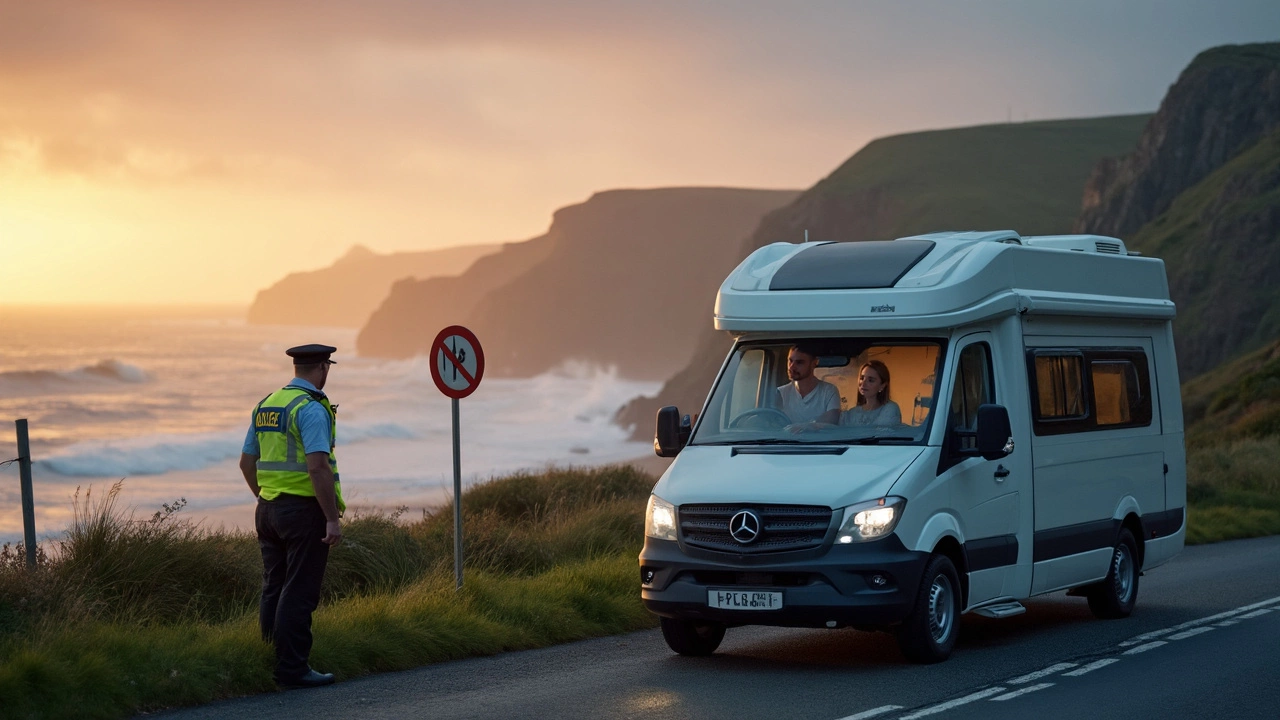RV Law: Must‑Know UK Motorhome Rules for a Safe Trip
If you’re planning a road trip in a motorhome, the first thing you need isn’t a fancy GPS – it’s a clear idea of the law. The UK has a handful of rules that keep you, your passengers, and other road users safe. Getting them right means you won’t face fines, points, or a busted holiday.
Key UK Motorhome Laws You Must Follow
Seat belts are mandatory. Every seat with a belt must be used while the vehicle is moving. That includes the driver’s seat, front passenger seat, and any passenger seats that have belts fitted. If a seat doesn’t have a belt, you can’t let anyone sit there while the motorhome is in motion.
Don’t walk or stand inside a moving motorhome. The law treats a moving motorhome like any other vehicle. Walking around, opening doors, or getting up to use the toilet while the engine is running can lead to a fine and points on your licence. The safest approach is to pull over, turn the engine off, and then move around.
Using the toilet on the move is illegal. UK regulations state that you must not operate the toilet facilities while the motorhome is traveling. Not only is it risky – you could slip or cause a spill – it’s also a breach of road safety law.
Child safety seats are required for kids under 12. Even if your motorhome has built‑in seats, children must be in a proper child restraint that meets UK standards. Check the specifications for your vehicle and make sure the seat is correctly installed.
License and insurance must cover the vehicle’s weight. Motorhomes are classified by their gross vehicle weight (GVW). Your driving licence (category B) covers vehicles up to 3.5 tonnes. Anything heavier needs a category C1 licence, and your insurance must match the GVW as well.
Practical Tips for Safe RV Travel
Now that you know the headline rules, here are some everyday habits that keep you on the right side of the law.
Plan your stops. Use a campsite or service area to stretch, use the bathroom, and reorganise your gear. This eliminates the temptation to move around while driving.
Keep a quick‑check list in the cab: seat belts fastened, doors locked, and the motorhome stationary before you stand up. A visual cue helps you remember the law without having to think.
Invest in a portable power station. Many motorhome owners use these to run lights or charge devices while parked, avoiding the need to run the engine just for electricity.
Check your vehicle’s manual for the exact location of the “stop” switch for the toilet system. Some models have a safety lock that prevents flushing while the engine is running – use it.
When travelling with kids, make the child seat installation a ritual. Double‑check the harness, tighten the straps, and ensure the seat is upright. Kids love the routine and you avoid costly fines.
Finally, stay updated. UK road laws can change, especially around new vehicle technologies. Subscribe to a trusted motorhome forum or the DVSA alerts to keep your knowledge fresh.
Following these rules and tips means you can fully enjoy the freedom of motorhome travel without worrying about legal headaches. Safe travels!
